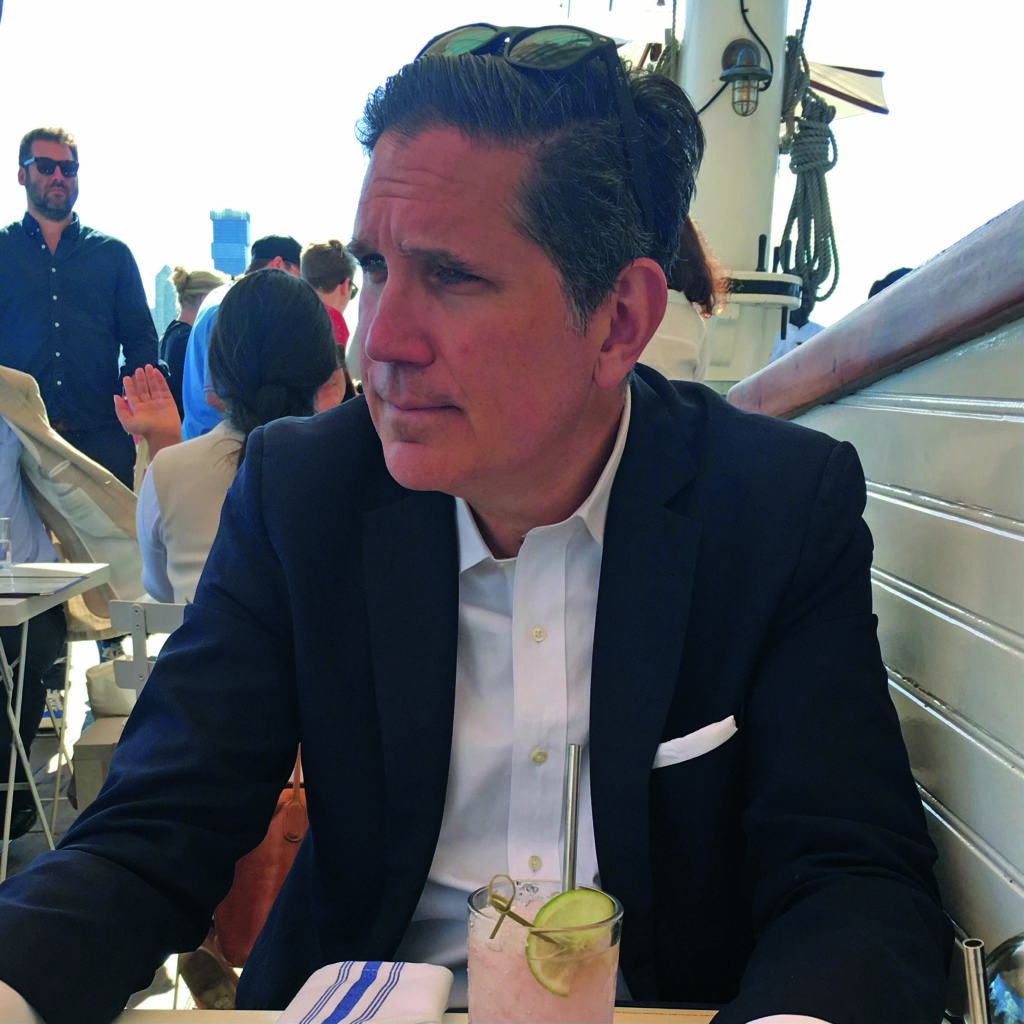Michael Thomas Duffy ’85
DEGREES
B.A. in economics; M.P.P., Harvard Kennedy School
JOB TITLE
President, GO Foundation
FAVORITE TRINITY MEMORY
Although I was born in N.Y.C., I spent most of my childhood living in Florida never seeing snow. Freshman year I remember the night of the first snowfall and grabbing my friend and neighbor in Jarvis, Mark Viklund, getting a tray from the cafeteria, running out to the quad, and sledding down the hill next to the Chapel. I also cherish the memory of beating my friends Chris Doyle, John Molner, and Lou Shipley at the board game of Risk during the final week of senior year.
What is the GO Foundation?
The GO Foundation is a nonprofit organization with a mission to provide students with access to a quality education through high-dosage tutoring. At the GO Foundation, we recruit, train, and support a corps of caring adults who are placed in partner schools, where they intensively tutor students as a part of the federal AmeriCorps program. A select group of these tutors are chosen to enter GO’s residency program and get trained to use their time tutoring as an apprenticeship to become effective classroom teachers.
Why did you start it?
In seventh grade, after bombing a placement test, I was put in the remedial math class at my middle school. At the end of that academic year, convinced that I was capable of doing more challenging work, my mom and dad successfully pestered the middle school’s administrators to let me into the eighth-grade algebra class. They hired a private tutor—I still remember his name, Mr. Cooper—during the summer between seventh and eighth grade to help fill in the gaps in my math knowledge. I ended up acing that eighth-grade algebra class, opening up advanced classes for me in high school, which in turn led me to Trinity and then to Harvard. That seemingly small intervention provided by Mr. Cooper changed my life. It’s why the GO Foundation has a vision of America where every child has access to a tutor to realize their full human potential.
What are your biggest challenges?
Hands down the biggest challenge right now is recruiting the tutors we need to meet the demand we are seeing from schools. The job market, particularly for entry-level positions, is the tightest it’s been in our lifetime, making it hard to find people to serve as tutors. If you are reading this and you know of a recent college grad (maybe your own kids?) looking for something worthwhile to do for a year before they start their career or head to grad school, have them apply at GOFellows.org. We are looking for 300-plus tutors to go to urban schools throughout the Northeast for a one-year fellowship beginning in summer 2024.
Did you have a professor at Trinity who was particularly influential?
Professor Andrew Gold taught a class on urban economics that I really enjoyed. He was the one who told me about Harvard’s public policy program at the Kennedy School. I likely would have gone to law school without his guidance and encouragement. Diane Zannoni brought a lot of joy to her macroeconomics classroom, which isn’t easy for a discipline often called “the dismal science.” Alden Gordon’s art history course gave me an understanding of the basics of contemporary art and instilled in me a lifelong love of painting—I’m currently the chair of the board of the Lyme Academy of Fine Arts in Old Lyme, Connecticut. I also loved Howard DeLong’s logic course and Edmond Cherbonnier’s class called “Reason and Emotion,” which he taught in the evenings at the Religion Department building, with a fire going in the fireplace. Roger Shoemaker’s theater course, Dick Scheuch’s “Econ 101,” and Gerald Gunderson’s class in entrepreneurship . . . I had so many professors at Trinity who influenced me and helped make me who I am today.
What was the most memorable course you took at Trinity?
I took Clyde McKee’s freshman seminar, “Politics and Oral Communication.” In addition to introducing me to lifelong friends like Jane Melvin, the course TA, and Lee Coffin and Paul Newman, my classmates, it was a blast for me from the start. We used Roberts Rules of Order to run the class, and I’ve put my knowledge of them to good use on the many boards I’ve since served on. My sophomore year, I became the TA for the course and had Professor McKee add the book Advise and Consent to the reading list. One of the plot points for the book dealt with a character’s hidden sexual orientation. Looking back on it, that represented a moment in my own coming out as a gay man.
